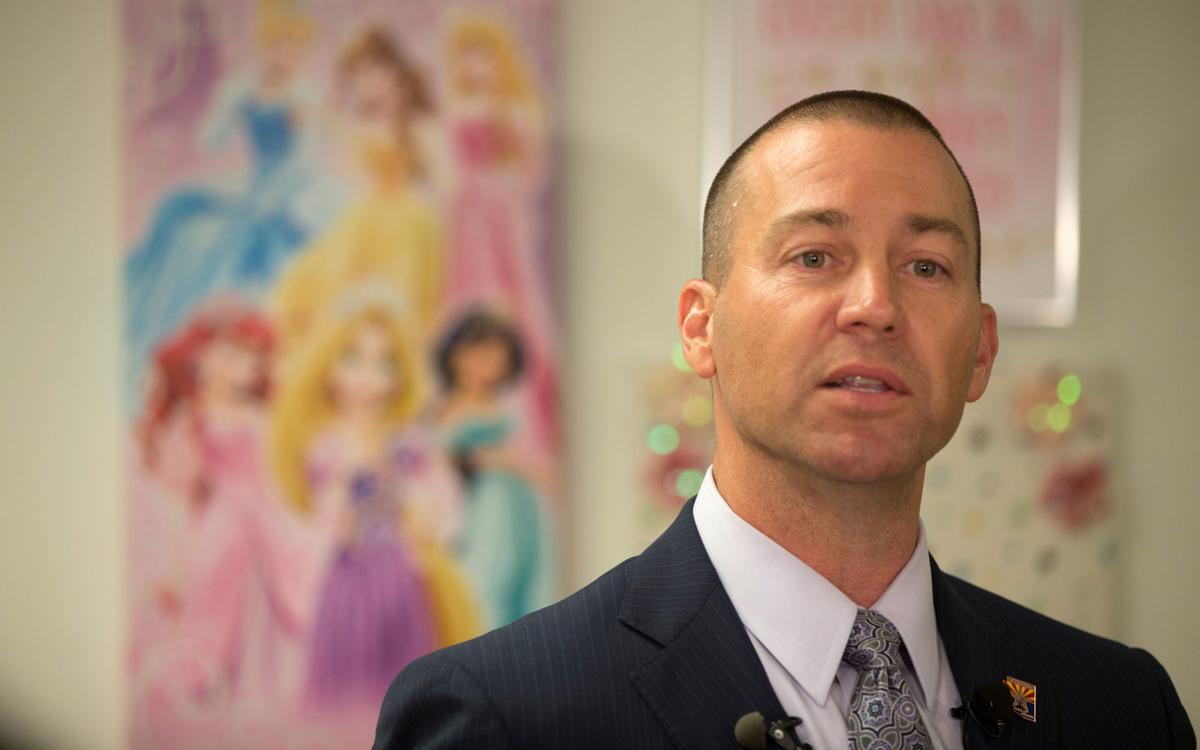PHOENIX — A Washington, D.C., organization is challenging the ability of the heads of state agencies in Arizona to discard the conclusions of independent hearing officers.
The new lawsuit filed Friday in Maricopa County Superior Court contends that a caregiver at a group home was denied his rights when Greg McKay, director of the Department of Child Safety, concluded he was guilty of child abuse. Attorney Adi Dynar of the New Civil Liberties Alliance said McKay’s findings could result in the man — identified only as Philip B. — having his name entered into the Arizona Central Registry as a child abuser for the next 25 years.
Dynar said McKay’s conclusions are directly contradicted by the findings of the administrative law judge who heard the evidence and exonerated the man.
But the larger legal issue, said Dynar, is the fact Arizona law actually allows McKay to substitute his own judgment — and even his own version of the facts — from those of the independent hearing officer who conducted the hearing and listen to the witnesses. He wants a trial judge to find that statute unconstitutional.
The outcome of the case has implications beyond DCS.
Many other state agencies operate under the same statutory provisions, with directors given wide latitude to decide cases even when the findings are contrary to those of a hearing officer. A declaration of unconstitutionality would undermine the entire system, a move that could help those who are accused of running afoul of agency rules, including those whose professions are regulated by the state.
There was no immediate response from either DCS or the Attorney General’s Office that is tasked with defending the constitutionality of state statutes.
The underlying issue involves a 2018 incident when the caregiver was accused of placing his forearm against the neck of a 13-year-old boy to the point where the child’s face turned red and he was unable to breathe.
Dynar said that following a hearing the administrative law judge — who technically works not for DCS but for a separate Office of Administrative Hearings — concluded there was no probable cause to support the finding of abuse.
What happened next, Dynar said, is that McKay struck some of the testimony from the record, declined to accept the testimony of Philip B. and another adult witness, and ordered that the finding of abuse be listed on the record as “substantiated.”
“In effect, that outcome means a death sentence for his personal reputation and career, which he has spent so far exclusively caring for children,” Dynar wrote.
He said being listed on the Central Registry “can and will be used” against Mr. B. to determine qualification for any future job where he would be near a child.
That led to the appeal Friday in Maricopa County Superior Court and Dynar’s petition to the judge not just to overturn McKay’s findings but to void the process that allows the DCS director as well as those heading other state agencies to overturn the decisions of administrative law judges.
Dynar called it a “stacked process.”
“The only independent fact finder in the administrative process employed here was the administrative law judge,” he wrote. “The ALJ heard testimony, made credibility determinations, and entered finds of fact and conclusions of law into the record.”
But under the way Arizona law works, any appeal from the administrative law judge’s decision — whether by the person who was the subject of the complaint or the agency which filed the complaint — goes back to the head of the agency, “the very same agency that investigated and prosecuted the charge against Mr. B. in the first place.”
“Under this procedure, DCS and Director McKay not only investigated and prosecuted the child-abuse charge against Mr. B., but also acted as the ultimate fact finder and judge,” Dynar wrote.
In amending the findings of fact by the administrative law judge, the attorney said, McKay acted “as a one-man jury.” And in deciding whose testimony to believe, Dynar said McKay acted as a judge, something he said is particularly legally offensive given that it was the ALJ, and not McKay, who observed the witnesses and their testimony.
“To say that this process is ‘bad’ is a gross understatement,” Dynar argued.





